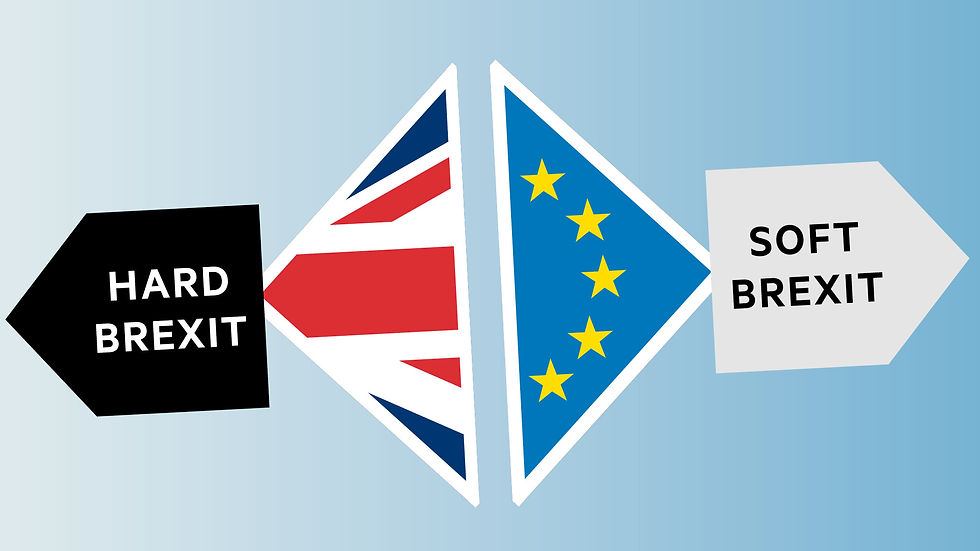
The case for a second referendum has been a prevalent part of British politics for the last several years. Those who argue for it suggest that it provides a clear way out of the current Brexit impasse, while others simply see it as a democratic way of reversing the result of the 2016 referendum, and retaining membership of the European Union. While it was a central policy of the Lib Dems, Labour have now also changed their position to say that, were they elected, they would negotiate a new deal with the European Union, and then hold a second referendum with that deal against remain. Ironically, a Labour deal would likely seek to have unrestricted access to the EU single market, and retain membership of the customs union. In other words, EU membership outside of the EU itself, and therefore without a role to play in the making the rules and regulations that the UK would have to abide by. Labour has consistently argued that only they can offer a ‘credible leave option’ yet, for many Brexiteers, a deal negotiated by them would be ‘Remain’ in all but name and certainly wouldn’t represent a credible leave option.

Though a vast majority of MPs voted to remain in the 2016 referendum (about 75%), the proportion is only slightly larger than the number of constituencies that voted to leave (about 65%), though exact figures aren’t available. Yet, there is a general consensus in Parliament - not by much I hasten to add - that Brexit has to happen, and it’s just a case of how. The only other agreement in Parliament is that no deal should not happen in any circumstance, though that view is not shared by the government. The country is also still incredibly divided on the issue of Brexit, with those such as the Lib Dem’s suggesting that Article 50 be unilaterally revoked without a second referendum if they are elected into government, and those within the Brexit Party arguing for a clean break Brexit (no deal). Therefore, a sensible solution regarding a second referendum would seek to bring the country somewhat together, and would put two leave visions to the country. One provided by Labour and soft Brexit suporters, likely based on retaining membership of the customs union and guarantees over workers rights etc, and one put forward by Johnson’s Tories, presumably essentially the deal that has been made with the EU last week, which aims to negotiate a free trade deal with the EU, while retaining the ability to make free trade deals around the world.

There are a number of benefits as to why this could represent a fair compromise. Firstly no matter the result of this hypothetical referendum, it would in theory honour the result of the 2016 leave vote. Even a vote to remain in the customs union, which for many Brexit supporters would feel very similar to EU membership, would honour the first vote in theory, even if some would argue it wouldn’t in practice. Secondly, since the vote would be between two ‘moderate’ leave options, the hope would be that the campaign would focus significantly more on the detail of the two proposals than the 2016 campaign did, and as a result try to start to heal the divisions within the country. Given the differences won’t be as stark or unclear as ‘leave’ or ‘remain’, you would hope this would lead to a more informative campaign, and therefore a less divisive one.
There have been other suggestions of a second referendum which don’t put some kind of negotiated deal with the EU up against the option of ‘remain’. Many on the Brexit side of the debate have argued for a second referendum between deal or no deal, suggesting that it would ensure Brexit is carried out, but the ’52’ and the ’48’ have a say in how. The issue with this may be that if a deal were to be, for example, Johnson’s deal, many of the 48% would feel excluded from the debate given there wouldn’t be an option they can get behind.
Ultimately there is one significant problem with the proposition of a second referendum on two leave deal options. Envisage a situation where a Labour proposed deal wins, yet the Conservatives hold a majority in the House of Commons. Would they be able to negotiate a deal with the EU that they don’t support? It seems unlikely. Therefore, it seems that the way the Brexit impasse is going to be resolved is not be a second referendum, no matter the two options given to the country, but a general election. There is of course a risk that a general election would return a very similar parliament to the current one and there would still be gridlock, even if the polls show otherwise. But it would give the parties the opportunity to put their vision of Brexit, or for some their vision of Remain, to the electorate and make the arguments in the lead up to a General Election. Strap in though, because it will likely be a bumpy ride.

댓글